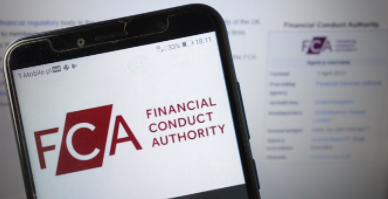Having seen a wide range of harm across sectors, the FCA’s proposed changes aim to improve principals’ oversight of ARs and will require principals to provide the FCA with more information on the ARs they appoint. Collaborating with HM Treasury on its Call for Evidence, the FCA has been seeking views on whether setting limits on the AR regime may help to reduce potential harm.
The AR regime
The AR regime allows an AR (a firm or person) to carry out a regulated activity on behalf, and under the responsibility of, a firm authorised by the FCA – known as the principal. In appointing an AR, the principal assumes responsibility for the regulated activities the AR carries out.
There are numerous benefits to using ARs; it is cost-effective, encourages competition and supports innovation. The regulator reiterates that the AR regime provides an important function, which is beneficial to consumers, when functioning properly. It is therefore unsurprising that there are currently around 40,000 ARs operating under the supervision of around 3,600 firms.
But FCA data analysis has found that principals on average generate 50-400% more complaints and supervisory cases than non-principals, across all sectors where this model operates. The FCA’s data also showed that FSCS claims relating to principals and ARs accounted for 61% of claim value. Harm is occurring as a result of principals’ lack of due diligence and failure to exercise sufficient oversight and control over the regulated activities being carried out by their ARs. The risks are that ARs could be acting outside the scope of their appointment, providing misleading information or delivering products and services to customers that are inappropriate.
Proposed changes
As a result, the FCA consulted on two main areas of change:
Additional information on ARs and notification requirements for principals
- Currently, principals are only required to report to the FCA high-level information such as the AR’s name, contact details, legal status, date of appointment, whether it is an IAR or ‘full’ AR and the market in which they operate.
- The FCA are therefore proposing that principals provide additional information on the AR’s business, revenue and financial relationship with the principal, complaints and the regulated and non-regulated activities they carry out.
- Information on IARs will be limited to the nature of the regulated activities to be undertaken, financial arrangements between the IAR and principal, and revenue from regulated activity during the first year of appointment.
- Changes to the notification requirements for principals have also been suggested. Principals will be required to notify the FCA at least 60 calendar days before an AR appointment takes effect and any changes to the AR’s name, or the regulated activities it carries out, are to be notified at least 10 days beforehand.
- It is hoped that these changes will allow the FCA to identify potential risks and assess whether the principal has adequate expertise, systems and controls to oversee the ARs effectively.
Clarifying responsibilities and expectations of principals in FCA rules
- The FCA proposes new guidance for principals on how to meet FCA expectations.
- This includes assessing senior management at ARs annually for how well they align with fitness and propriety requirements. The assessment should consider whether ARs have sufficient experience, training, knowledge and skills and whether they have the necessary time to perform the tasks for which they are responsible.
- The FCA also intend to strengthen the expectations of firms to monitor AR’s activities. Principals must take ‘reasonable steps’ to ensure ARs act within the scope of their appointment, including specific oversight of ARs where the size of the AR business increases significantly or where turnover and/or staff turnover is unusually high.
- The FCA have also clarified the need for ARs to have ‘adequate controls and resources’. This means controls and resources that: are commensurate to the size of the AR’s business and the regulated activities it carries on, enable the principal to manage conflicts of interest and maintain effective oversight, and enable the principal to identify and resolve any issues arising from the AR.
The consultation paper also sought views on regulatory hosting arrangements (where the principal itself does not engage in regulated activity to any meaningful extent itself but instead allows ARs to use its permissions to do so), prudential standards and whether setting limits on AR arrangements could reduce potential harm. In addition, the FCA is using the opportunity to simplify SUP 12 within the FCA Handbook. The proposals include several amendments, however the draft instrument does not change the substance of the FCA’s requirements.
Comments on the FCA’s Consultation and HM Treasury’s Call for Evidence closed on 3 March 2022, and final rules are expected in the first half of 2022. These form part of the wider intervention to tackle supervisory issues across sectors, which have also been considered in the FCA’s 2021/22 Business Plan and 2020/21 Perimeter report. It is therefore crucial that those firms who have AR arrangements in place, or intend to supervise ARs in future, are aware of the proposals.
If you have any questions on the proposed changes to the ARs regime or wish to discuss, please contact us here. Our team will be happy to help.




